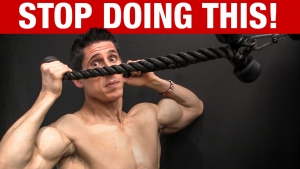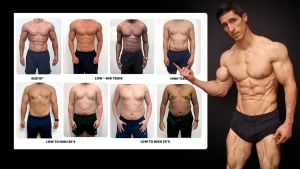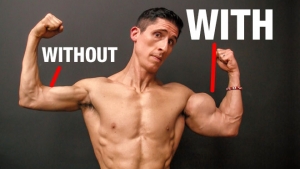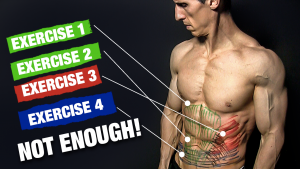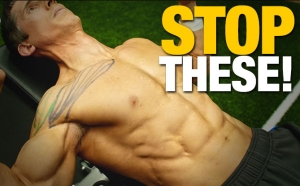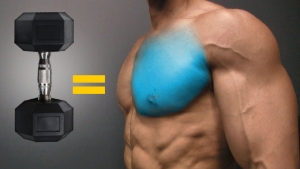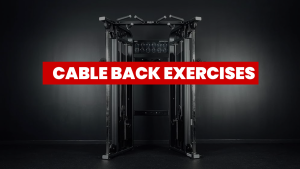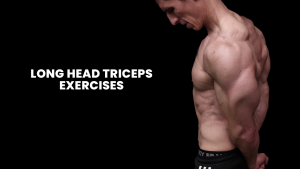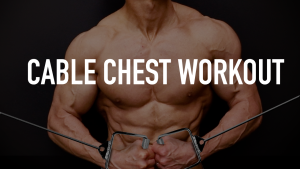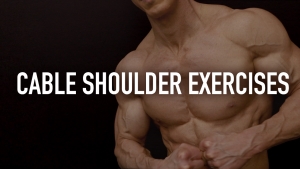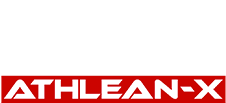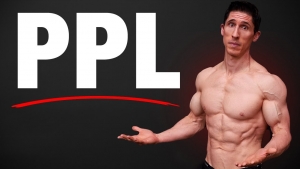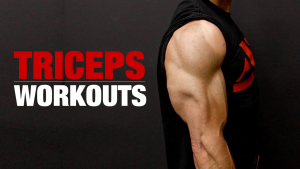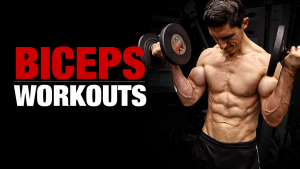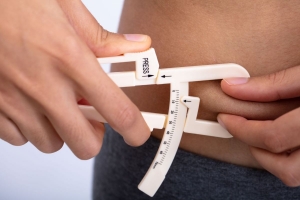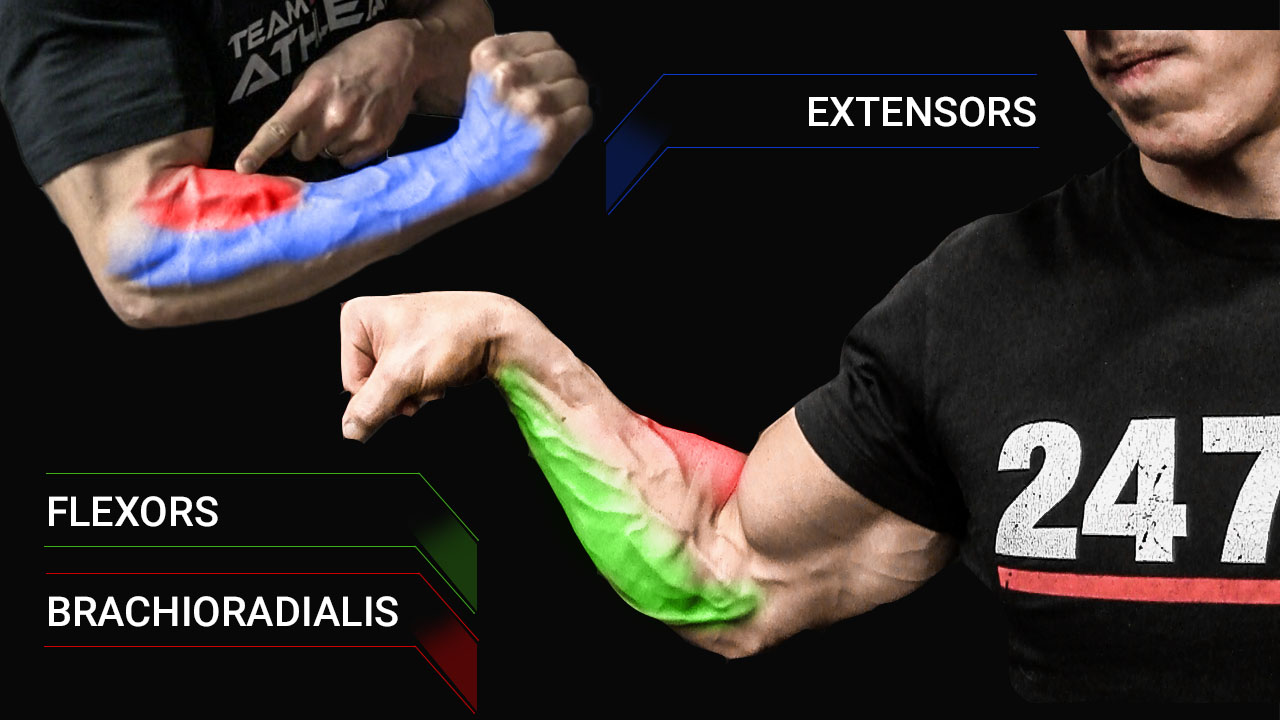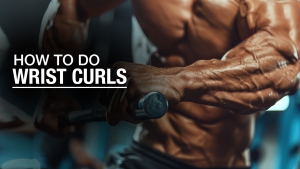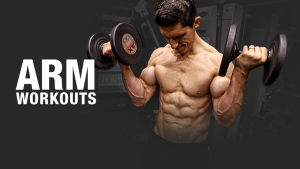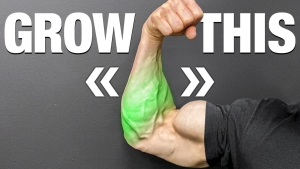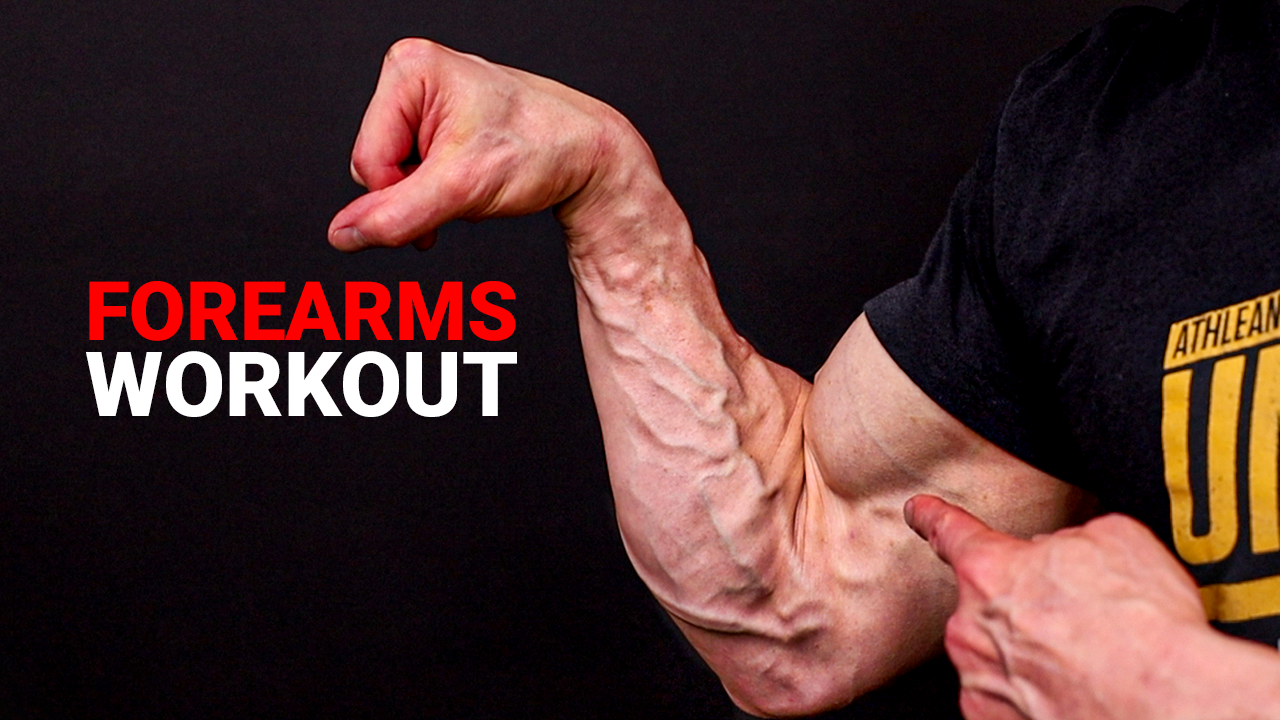
THE ULTIMATE FOREARM WORKOUT GUIDE
Forearms might not be at the top of your list of favorite muscles to train, but it’s important that you show them some attention too.
If you skip out on forearm exercises in favor of others like core exercises, you run the risk of having weak grip strength performance and bad overall arm aesthetics.
“But Jeff, I do a back workout. Isn’t that enough for strong forearms?”
Unfortunately not, as most of the forearm work that you do during a pulling workout is barely secondary compared to how much focus the bigger muscles are getting. What’s more, the forearms are competing with their counterparts to the north – the biceps.
With that said, you need a plan so that you know exactly which forearm exercises to do, how to do them, and how often you should train them to build massive forearms.
It’s about time that I answer all of that (and a whole lot more).
This guide doesn’t just feature the best forearm workouts. It’s simple to follow and split into sections so you can quickly find the answer to your question.
In addition, I will be addressing the most popular questions related to forearm exercises and forearm workouts.
Here’s a quick breakdown of the topics that I’ll cover in this forearm training guide:
1) FUNCTIONS OF THE FOREARM
The forearm muscles are responsible for five crucial movements.
To help you understand how the forearm and its muscle fibers work, I’ll show you the different types of forearm functions.
- Ulnar deviation
- Radial deviation
- Wrist flexion
- Finger flexion
- Pronation
The reason we’re starting with breaking down the functions is the mind-to-muscle connection. Once you see how the forearm functions, you’ll understand why each of the exercises I’ve chosen makes sense for your entire forearm workout.
Most importantly, you’ll understand why the best forearm workouts are probably different from what you’re used to.
ULNAR DEVIATION

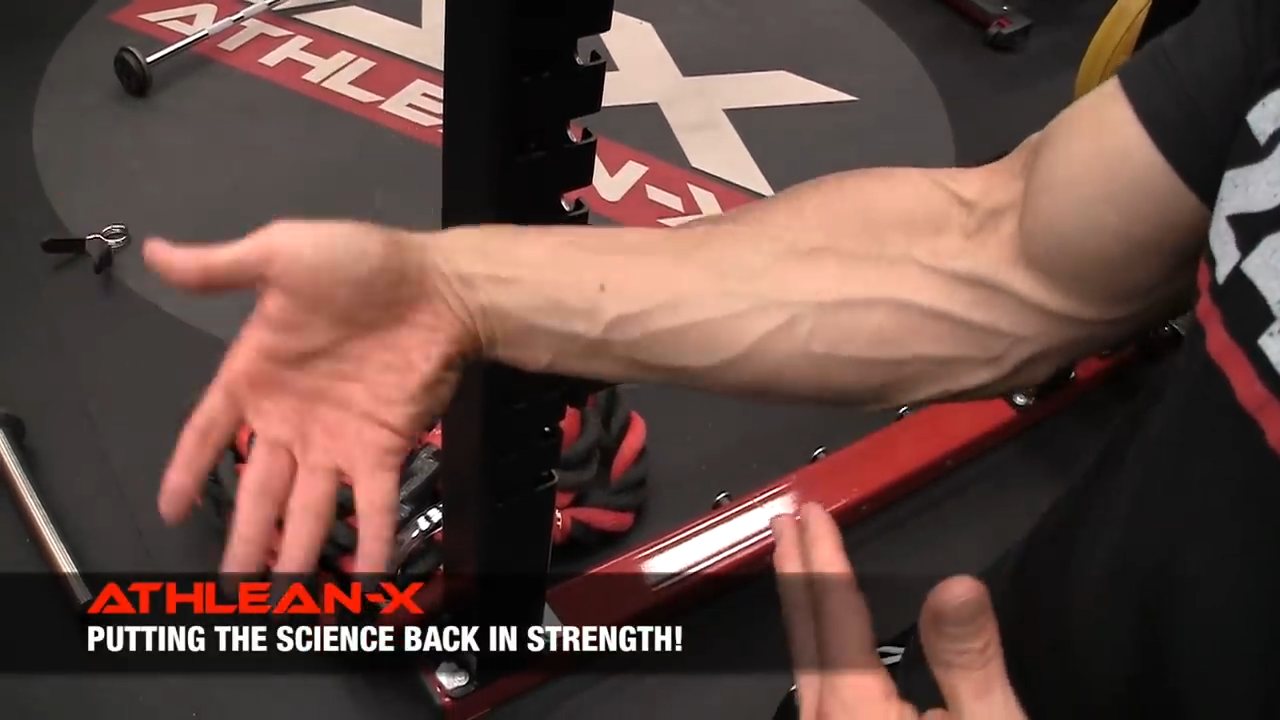
Hold your arm straight out and try moving your hand so that the pinky finger moves toward the outside part of the forearm. This awkward-looking wave is called Ulnar Deviation.
RADIAL DEVIATION

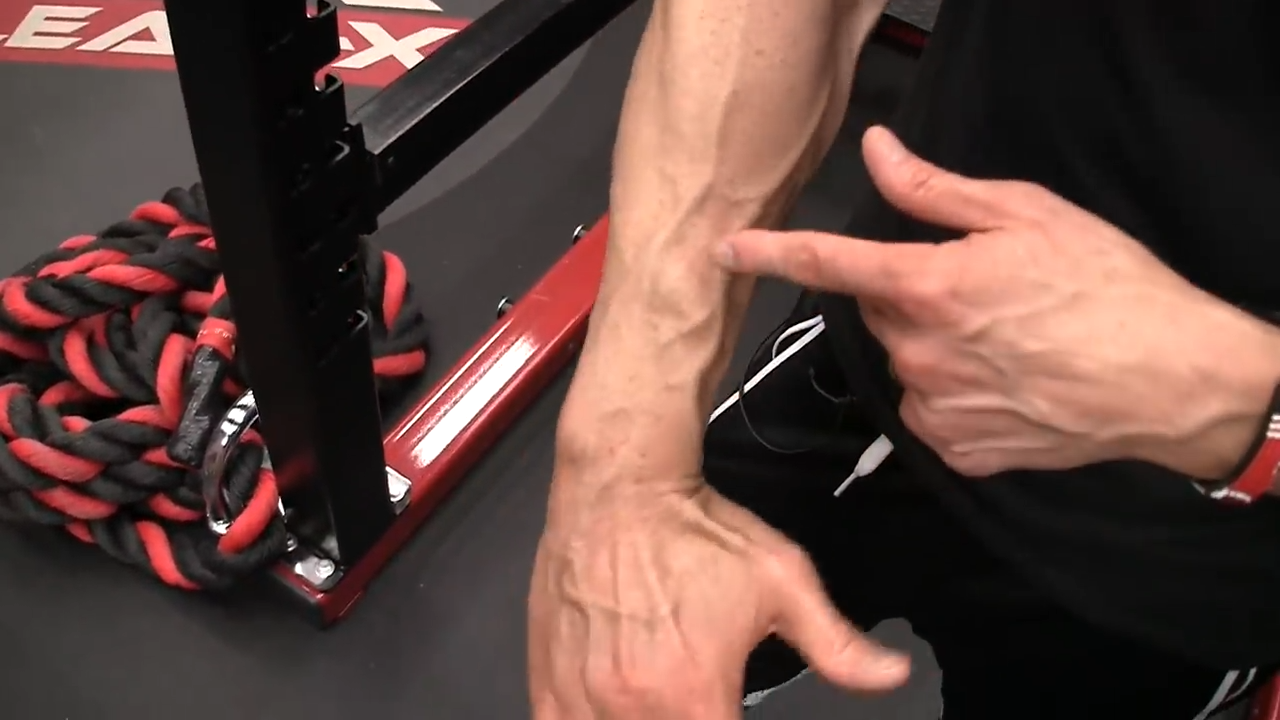
Now I want you to go the opposite way. Move your hand so that your thumb moves toward the inside part of the forearm. This is called Radial Deviation.
WRIST FLEXION

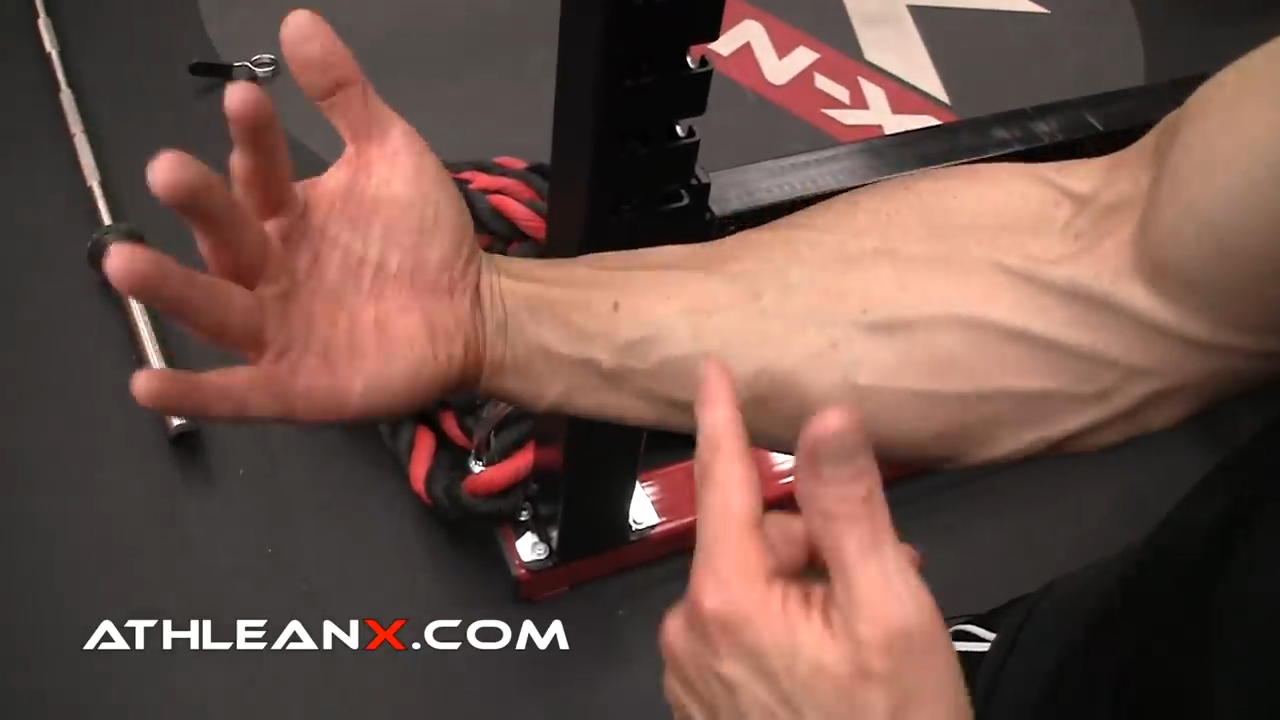
Turn your hand up so you can see your palm. Keep the arm straight and try to move your hand inwards toward the forearm. You’ll immediately notice the forearm engagement in the wrist flexors.
FINGER FLEXION

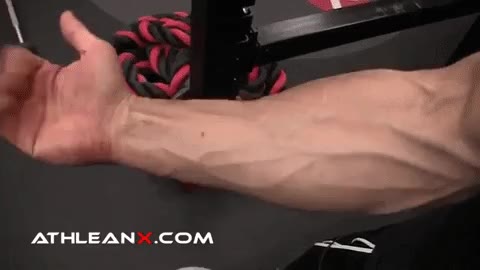
Holding that form, I want you to close your hand, but not like you’re making a fist. Simply, bring the fingers down. Again, you’ll notice a contraction in the forearm finger flexors but not like the wrist flexion.
PRONATION

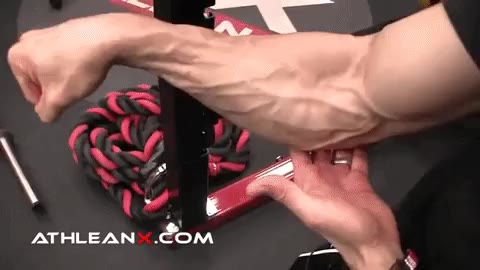
From the finger flexion, close your hand completely and turn it to the left and then out. You’ll see that the forearm immediately looks thicker.
2) WHY ARE FOREARM WORKOUTS IMPORTANT?
They might not get the same attention that the biceps and triceps get, but that doesn’t mean the forearms are any less important.
Without muscular forearms, all upper body exercises would be impossible.
Forearms are responsible for many of the functions we use our arms for on the daily. That means they affect nearly everything we do, from using chopsticks to working out at the gym with heavy weights.
Here are a few more reasons to consider some wrist and forearm workouts for your program.
GRIP STRENGTH
The ability to grip something, whether it’s a weight, pull-up bar, or gaming controller, isn’t something we think about much, but if you have a reduction in grip strength you’re going to notice it.
Poor grip strength performance can directly impact you inside and outside of the gym.
And you want a stronger grip because it allows you to perform better in the gym on exercises with heavier loads like deadlift variations and regular barbell curls, but it can also help with everyday tasks and improving your daily life.
What’s one of the best ways to boost your grip strength? Good forearm workouts that include grip-intensive exercises.
Studies show that there is a direct connection between forearm size and development and grip strength.
Adding in some forearm workouts with weights can help to dramatically increase grip strength performance.
BENEFITS OTHER EXERCISES
The major forearm muscles are small, but they have a huge impact on the other exercises you’re doing.
When your forearm muscles aren’t strong enough to provide the necessary stability, you limit how much weight you can lift. You also might put yourself at risk for unnecessary injuries.
But when you do some of the top forearm workouts, you’ll see a direct impact on other exercises that rely on the forearms. A few great examples of exercises that will benefit from stronger forearms include the Barbell Bench Press, Farmer’s Carry, Barbell Deadlift, and Pull-up.
IMPROVES OVERALL UPPER BODY APPEARANCE
Think about when you see a guy with big quadriceps but really small calves. Something seems off, right? Well, that same goes for your arms.
Having muscular forearms can help to balance your upper body aesthetic, and it will improve how your physique looks overall.
3) WHAT IS THE BEST FOREARM WORKOUT?
The best forearm workouts are rarely easy forearm workouts.
They are easy to understand, but the hard part comes in because you have to be consistent.
What’s more, the most efficient forearm workout routine utilizes every function of the forearm I mentioned above, but it also targets a muscle called the brachioradialis.
And no, you can’t just use heavy loads during a bicep workout and call it a day. You have to utilize dedicated forearm exercises to target these specific functions.
You can find the brachioradialis just above the forearm, and it’s responsible for forearm pronation. So, in order to target this muscle, you’ll want to do some effective forearm exercises that incorporate forearm pronation.
I’ve got you covered with these effective forearm workouts. You’ll immediately notice each of these exercises performs one of the forearm functions.
Start with light weight until you get used to this series of forearm exercises.
PRONE WRIST CURL

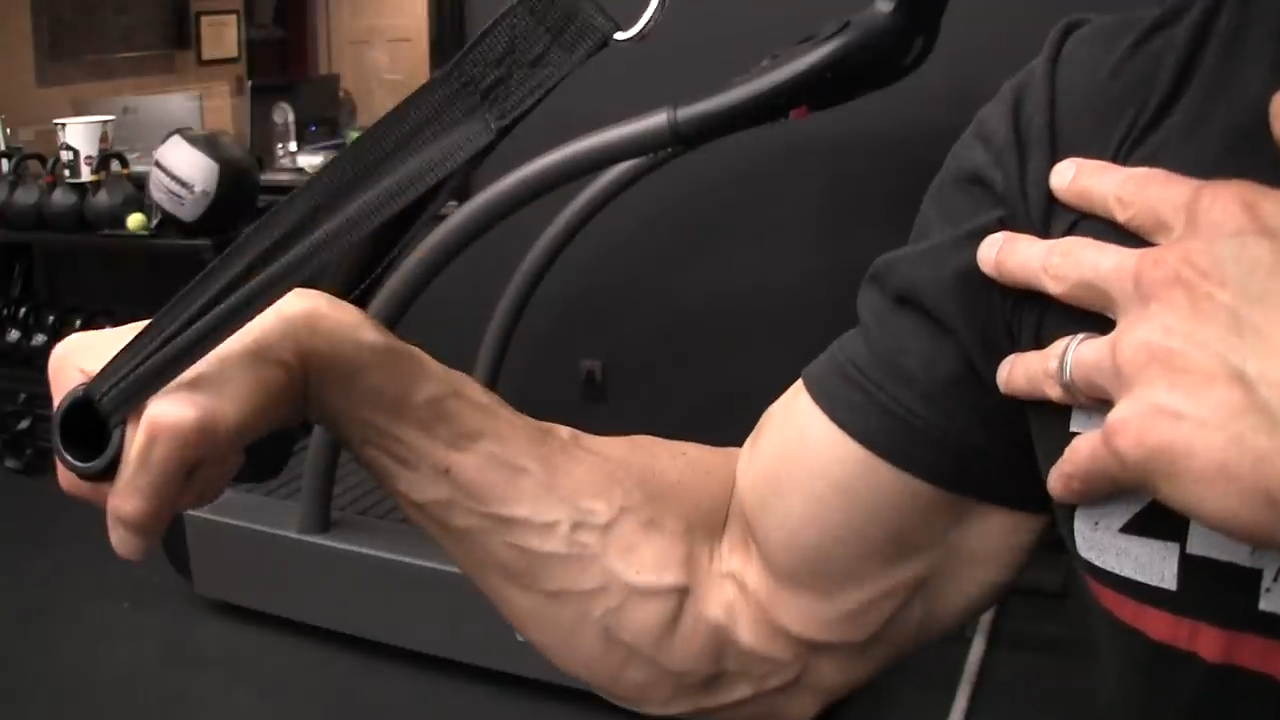
By using a cable for the Prone Wrist Curl, you allow your biceps to rest and prevent injuring your elbow.
HOW TO DO THE PRONE WRIST CURL:
- Start the Prone Wrist Curl by grabbing a cable handle attachment with one hand at about shoulder height. Make sure you’re using an overhand grip with your palms facing away from you.
- Bend your elbow to take your biceps out of the movement. Flex the wrist forward and away from you and return to the starting position in a controlled manner.
- If you don’t have access to a cable machine, you can easily perform it with a resistance band. In fact, forearm band workouts are just as effective as forearm workouts with weight plates.
WHAT MAKES IT EFFECTIVE: This variation provides a more intense contraction of the forearm muscles while keeping the biceps muscle from taking over the movement. If you want that road map on your arm, this is one of the best workouts for forearm veins.
REVERSE WRIST EXTENSION

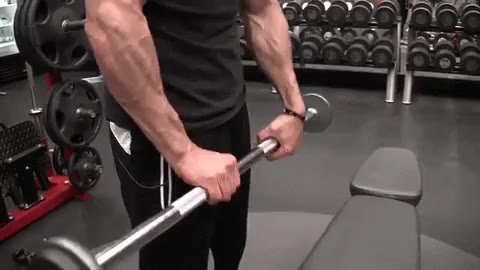
HOW TO DO THE REVERSE WRIST EXTENSION:
- Starting position is with feet shoulder-width apart, take an overhand grip on the chin-up bar with palms facing your thighs.
- You want a firm grip on the chin-up bar at shoulder width.
- Keep your arms straight and core tight as you flex the weight back and forth toward you in a rolling motion.
WHAT MAKES IT EFFECTIVE: The Reverse Wrist Extension uses a roll that goes in the opposite direction from the traditional variation. This wrist roller trains your wrist perpendicular to the force of gravity, which in turn maximizes tension in the forearm. You might even notice that your finger strength improves from the rolling.
ROPE ULNAR DEVIATION

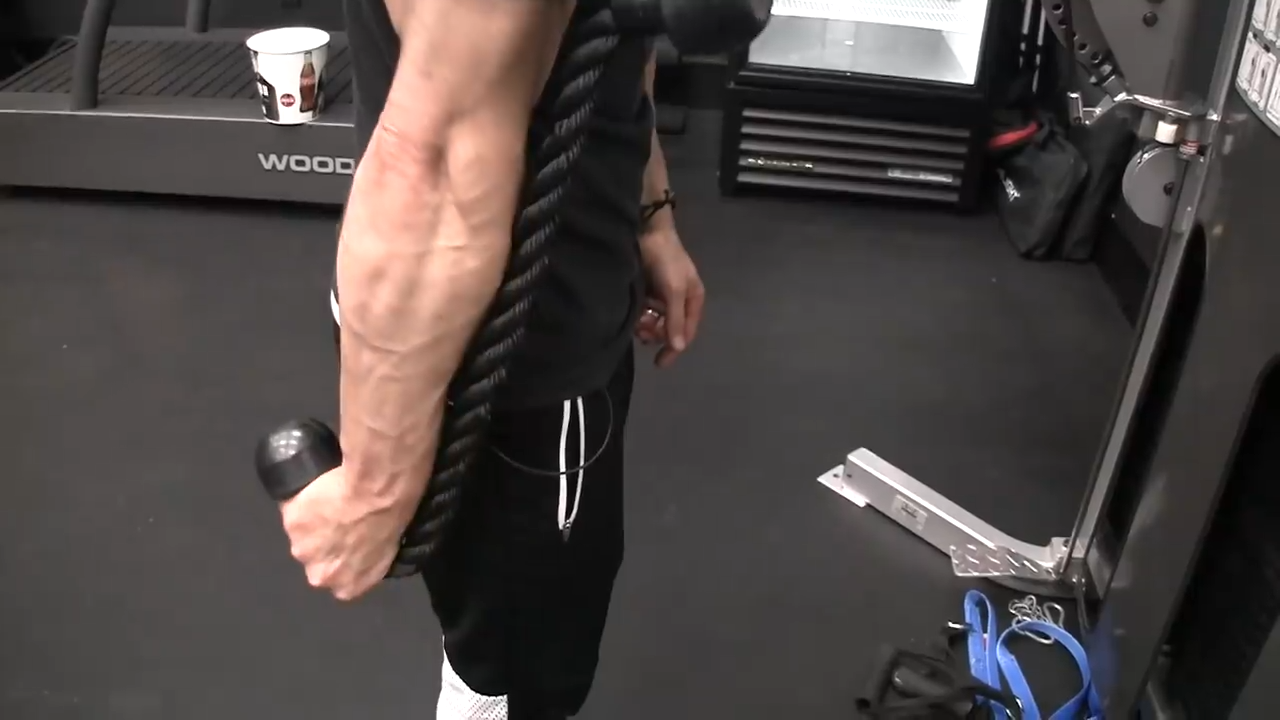
HOW TO DO ROPE ULNAR DEVIATION:
- Grab the rope of a cable pulley machine. Starting position is standing tall with your arms at your side.
- Keeping the upper arm in place, focus on moving the hand and wrist only.
- Bring your hand downward while holding the handle, pause and then slowly return to the starting position.
WHAT MAKES IT EFFECTIVE: Ulnar deviation is when we bend the wrist down toward the ulna, or the underside bone of our forearm. Since most people don’t have a sledgehammer at home, using the rope at the gym is a practical way to work ulnar deviation. You can also use a resistance band, which makes this one of the good forearm workouts at home.
ROPE PRONATION

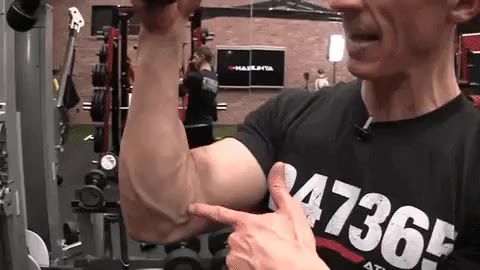
HOW TO DO ROPE PRONATION:
- Grab on to cable pulley handle and bring your upper arm up to chest height.
- Move your arm into the shape of an “L” while holding the handle.
- Focusing only on the wrist and hand, twist the hand away from the cable machine.
- Pause and feel the contraction in your forearm and slowly return to the starting position.
WHAT MAKES IT EFFECTIVE: You should work on pronation of the wrists with a rope at the gym because the cable pulley will provide constant tension as you twist your hand.
CLIP SQUEEZES

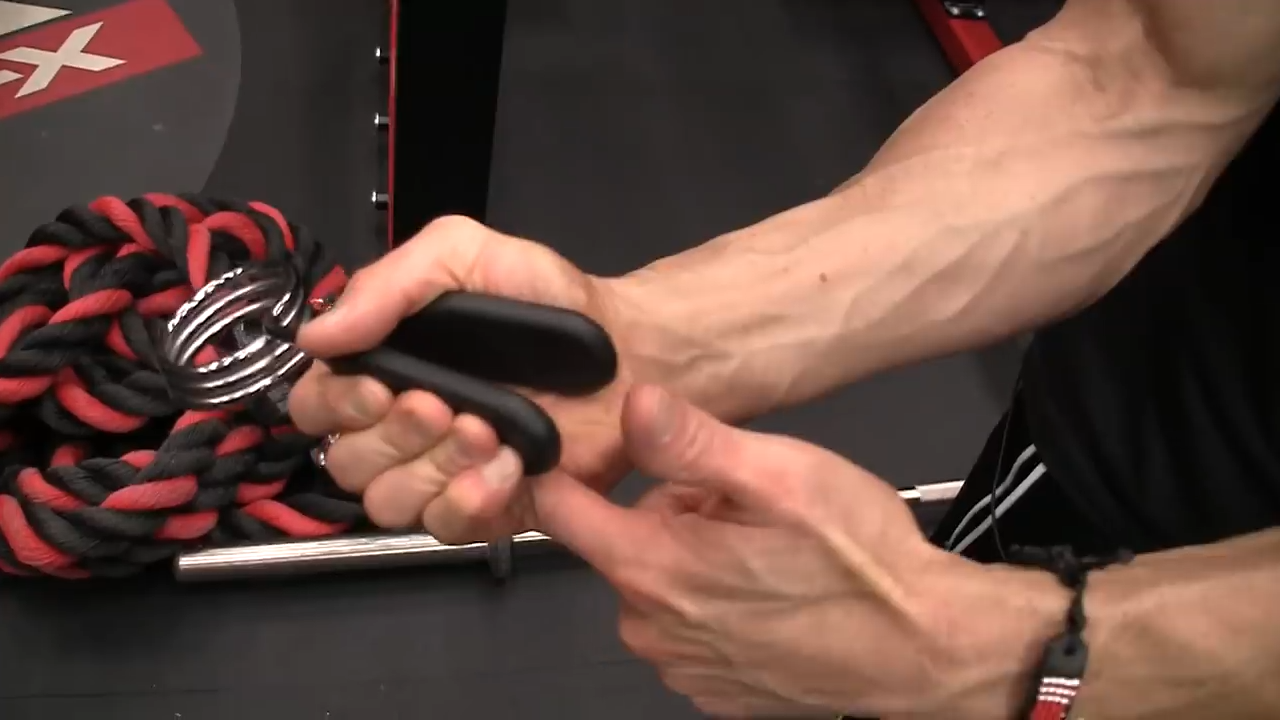
HOW TO DO CLIP SQUEEZES:
- This is a straightforward grip exercise. Simply squeeze the clip with a tight grip and then slowly release.
WHAT MAKES IT EFFECTIVE: Doing squeezes with a clip is one of the best ways to work intrinsic hand strength.
DEAD ARM HANG

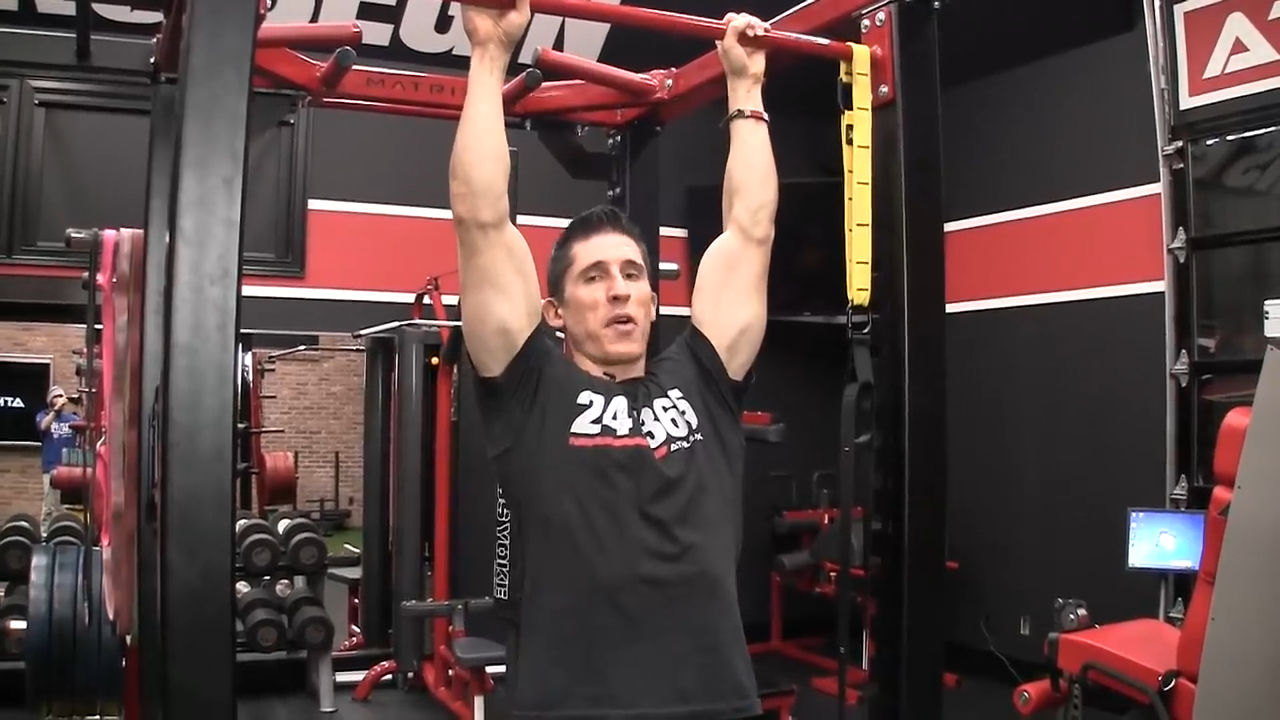
HOW TO DO THE DEAD ARM HANG:
- For this grip exercise, hold on to the pullup bar with a shoulder-width grip in dead hang position for as long as you can.
- The bar is gradually going to slip through your fingers. To avoid injury, don’t let this happen! It can put strain on the distal fingers metacarpals and stress the elbow connective tissue.
WHAT MAKES IT EFFECTIVE: You are using your bodyweight in dead hang position as the source of resistance in this pull-up bar hang, which means you can stop the movement safely as soon as you feel that the stress has shifted from the forearms to the fingers or elbows. This simple exercise is great for upper body strength and grip strength.
If you’re looking for the best forearm workout that you can do at the gym, check out my article the Perfect Forearm Workout.
4) WHAT IS THE BEST DUMBBELL FOREARM WORKOUT?
Let’s say you don’t have a gym membership, but you do have access to a full set of dumbbells. Can you still get in a great forearm workout? Of course!
In fact, you can use a pair of dumbbells to train the forearms for any fitness goal, including strength, hypertrophy, etc.
Here are the best forearm workouts with dumbbells:
FARMER’S CARRY

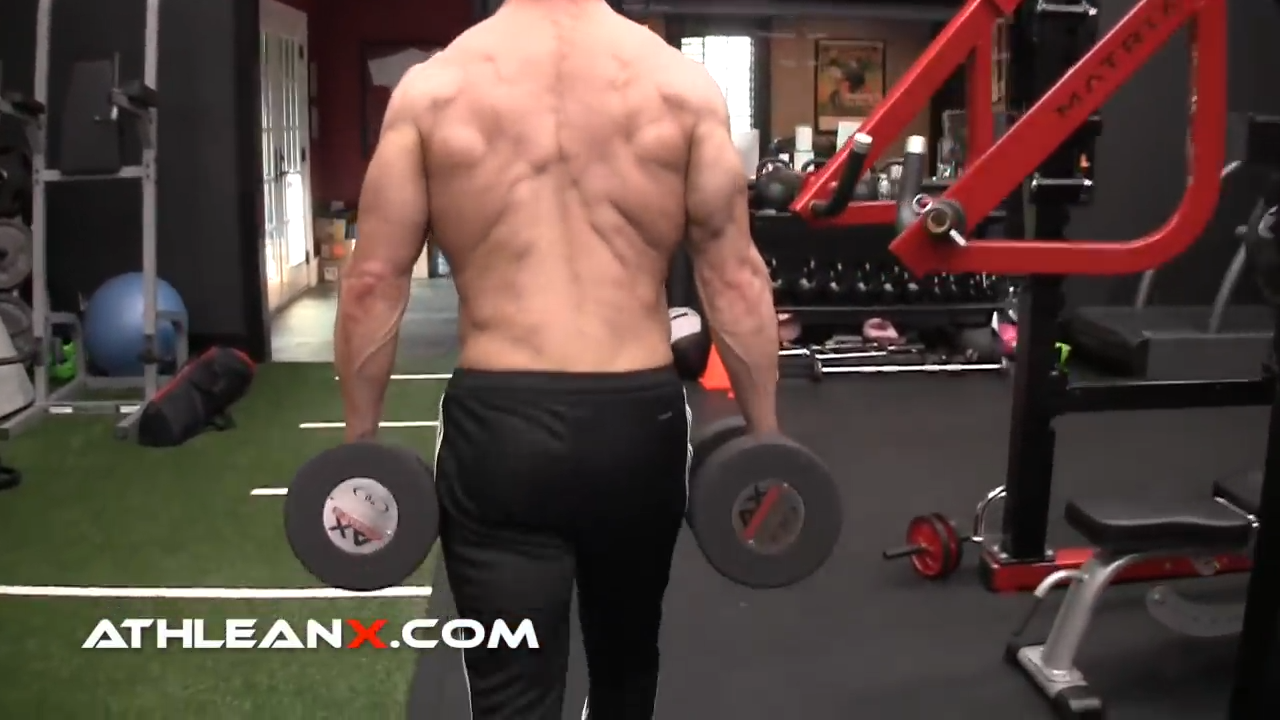
HOW TO DO THE FARMER’S CARRY:
- This is one of my favorite dumbbell forearm workouts. Stand tall as you hold and carry heavy dumbbells with a tight grip, walking one lap around the gym.
- If you have limited space, be sure you are doing a step count of at least 12-15 steps.
- Maintain your core strength the entire time.
WHAT MAKES IT EFFECTIVE: The Farmer’s Carry is an excellent forearm muscle-activating exercise that is also a grip challenge, testing your forearm endurance. As your grip strength improves you can increase the load in increments.
OFFSET DUMBBELL REVERSE CURL

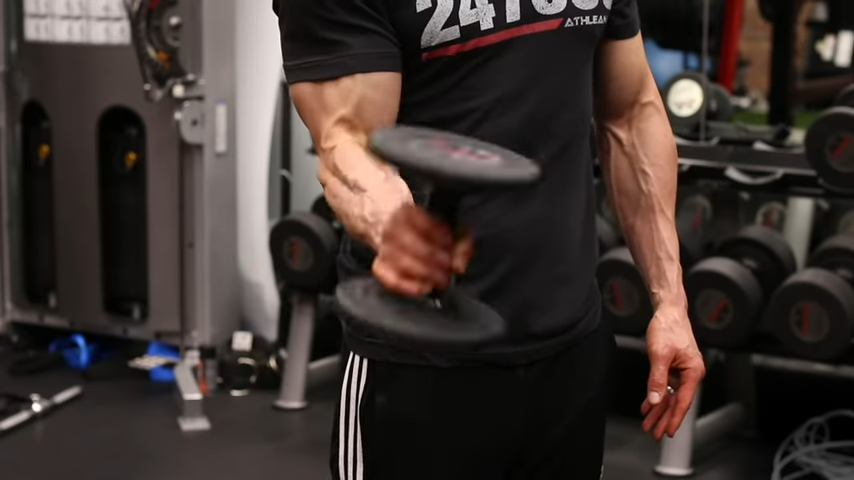
HOW TO DO THE OFFSET DUMBBELL REVERSE CURL:
- Starting position is holding a dumbbell as you would for a bicep curl in a supinated grip (underhand grip), but then take the bottom of the dumbbell and perform a literal twist it as you lift, ending in a pronated grip. Keep the upper arms locked against your sides.
- Return to the starting position.
WHAT MAKES IT EFFECTIVE: An offset grip gives you the chance to overload in the pronation position. In other words, I must lift my dumbbells upwards, as gravity is pushing them downwards.
REVERSE CURL

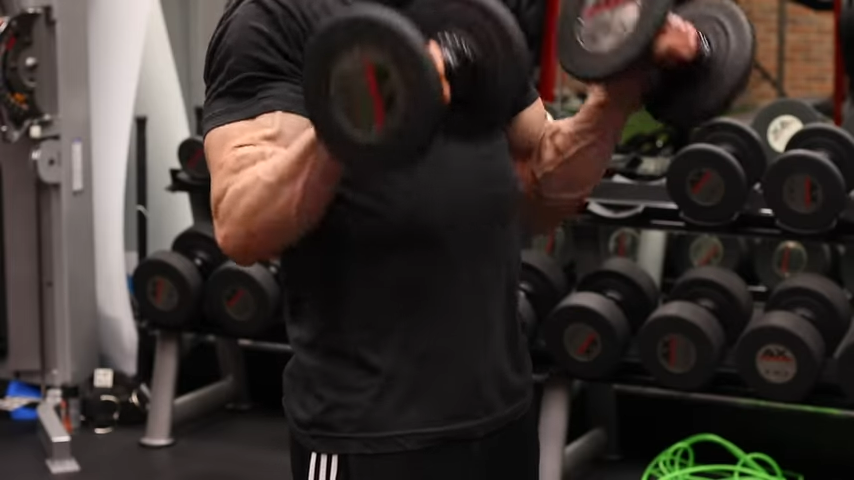
HOW TO DO IT:
- For this dumbbell curl, starting position is standing upright with your feet shoulder-width apart, holding the dumbbells in each hand at arm’s length, palms facing toward your body (supinated grip).
- Slowly curl the weight with control toward your shoulders while keeping your elbows close to your sides.
- Reverse the motion to return to the starting position.
WHAT MAKES IT EFFECTIVE: The Reverse Curl allows you to move through a full range of motion, ensuring the forearm is working extra hard. That’s why I highly recommend adding it to your forearm dumbbell workouts.
For more great examples of forearm exercises with dumbbells, check out my article, the Perfect Forearm Workout.
5) HOW TO DO FOREARM WORKOUTS AT HOME
What if you have access to none of the pieces of fitness equipment I mentioned above, making it impossible to do gym forearm workouts?
More importantly, what if you still want to work your forearms?
Use one of these bodyweight forearm workouts is the only thing that’s required.
With that said, if you have a backpack, I have a few exercises that will really challenge your forearms and help you develop them.
Just a quick reminder that you don’t need a full set of dumbbells to do the exercises above. If you do have a simple set of dumbbells, you can still perform the forearm workouts at home with dumbbells that I mentioned above.
No dumbbells? Not a problem. Here are some good at home forearm workouts.
FOREARM FLEXOR PUSH-UPS

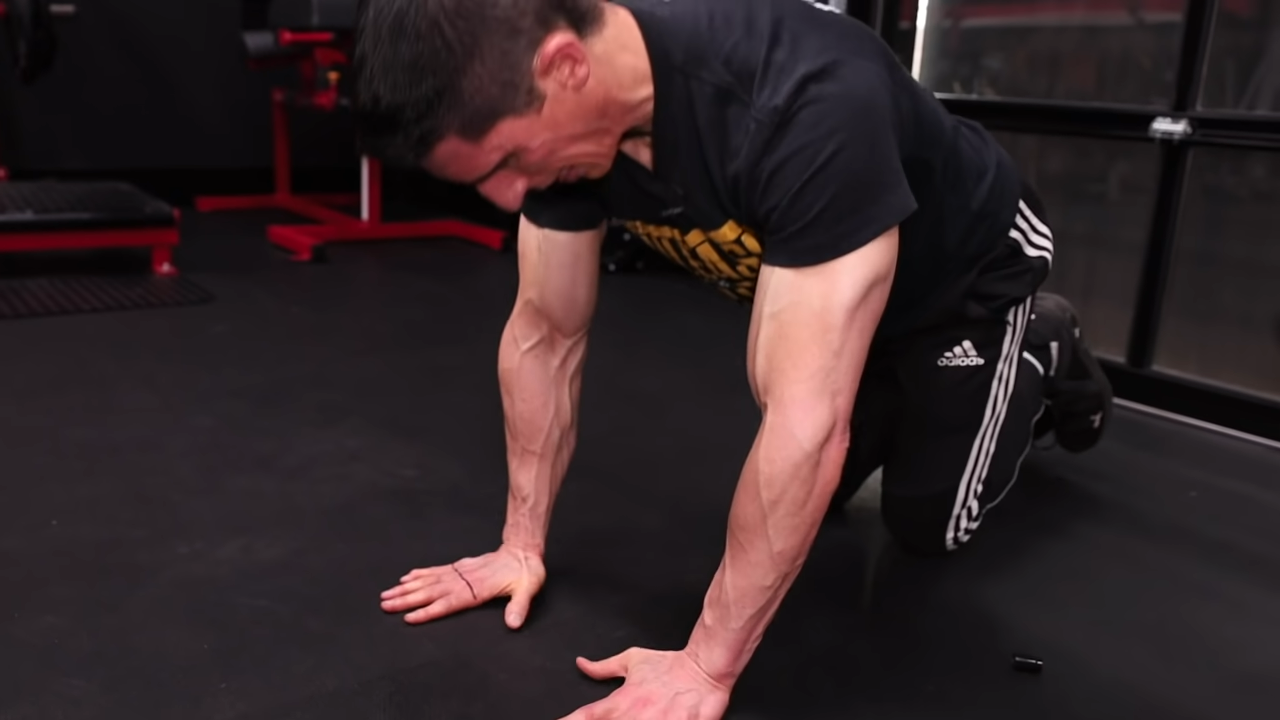
HOW TO DO FOREARM FLEXOR PUSH UPS:
- Get on the ground in all-fours position and begin flexing the palms up off the ground, keeping the fingers on the ground, utilizing the forearm muscles to do the flexing.
- Then return to the starting position and repeat.
- To make Forearm Flexor Push-Ups easier to visualize, consider taking one of your own muscle markers and drawing a line right across your knuckles. Focus on getting a bend through that portion of your hand by pushing down and through.
WHAT MAKES IT EFFECTIVE: In these Forearm Flexor Push-Ups the wrist goes from an extended position to a neutral position just by pushing through that line on the hand. This will safely and effectively activate the forearms.
FOREARM EXTENSOR PUSH-UPS

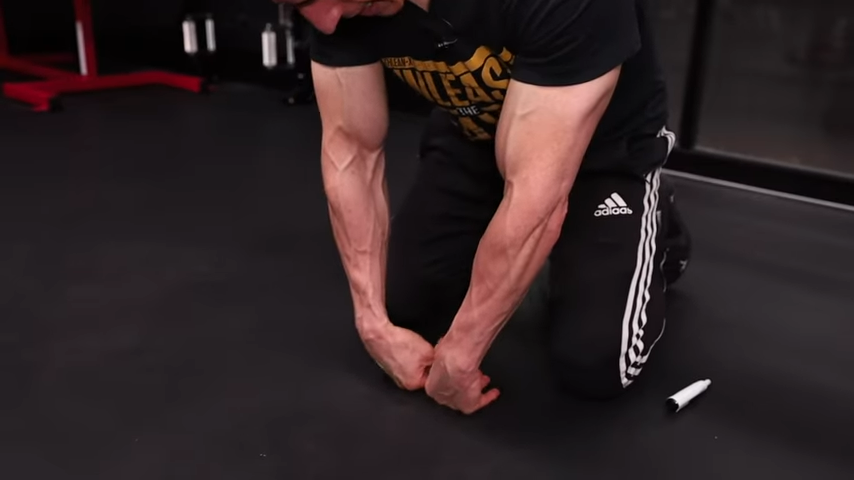
HOW TO DO FOREARM EXTENSOR PUSH UPS:
- For the Forearm Extensor Push-Ups place the back of your hands on the floor.
- Focus on pushing the hands up through to the fingers.
- Imagine trying to spread your fingers at the top of the movement, then slowly reverse with controlled movement.
WHAT MAKES IT EFFECTIVE: You’ll go through full ranges of motion in the Forearm Extensor Push-Ups, effectively activating the forearm extensor muscles on the back side of your forearm. This is truly one of the most effective forearm workouts without weights for forearm growth.
BACKPACK REVERSE CURL

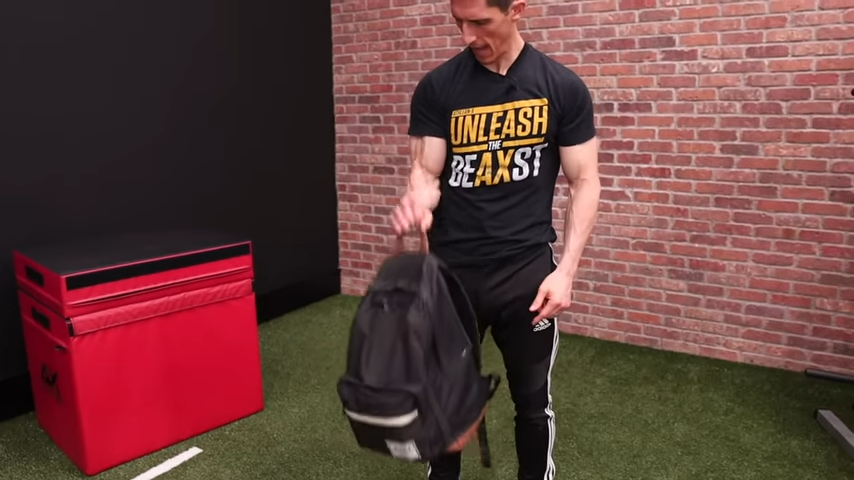
HOW TO DO THE BACKPACK REVERSE CURL:
- Start by holding a backpack in one hand by the top handle with an overhand grip and pronated forearm.
- Curl the backpack up and use a slight backward bend of the wrist as you hit the top portion of the curl.
- Lower slowly to the starting position and repeat.
- Even though you are using a backpack, this is still a part of my favorite home forearm workouts without weights.
WHAT MAKES IT EFFECTIVE: With the forearm pronated, you are ensuring your arm is in a flexed position that will target the brachioradialis to help with building forearms.
BACKPACK CLASSIC WRIST CURL

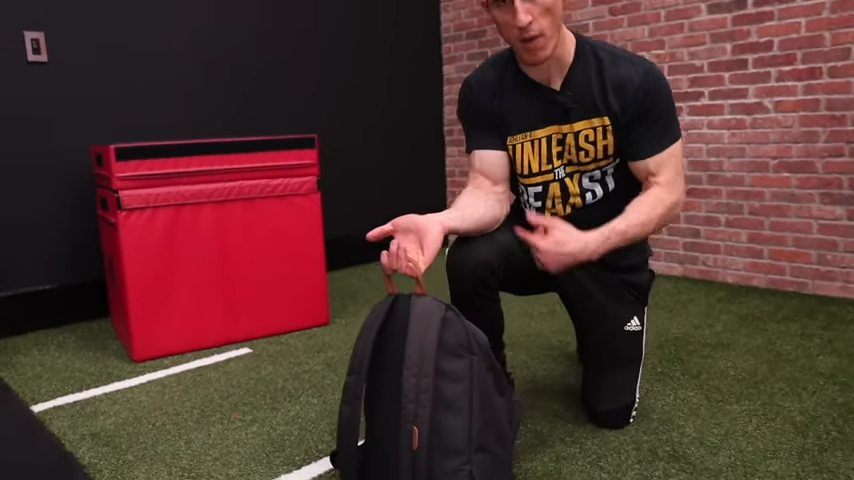
HOW TO DO THE BACKPACK CLASSIC WRIST CURL:
- For this standard wrist curl, place the elbow on the knee with the hand extended, grabbing the backpack by the top handle with an underhand grip.
- Curl the weighted backpack up with your wrist.
- Slowly return to the starting position and repeat.
WHAT MAKES IT EFFECTIVE: By placing your elbow on your knee, you are ensuring the backpack clears the ground and provides the required resistance to help with forearm growth.
BACKPACK EXTENSOR WRIST CURL

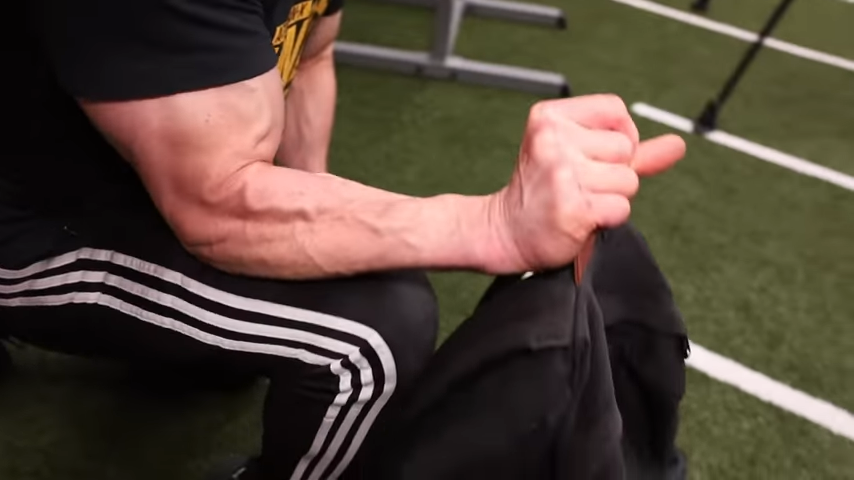
HOW TO DO THE BACKPACK EXTENSOR WRIST CURL:
- Place the elbow on the knee with the hand extended, grabbing the backpack by the top handle with an overhand grip.
- Curl the weighted backpack up by moving the hand up and back.
- Slowly return to the starting position and repeat.
WHAT MAKES IT EFFECTIVE: The extra height from the knee will help you to challenge the forearm muscles appropriately for forearm growth.
6) HOW TO GET BIGGER FOREARMS
If your goal is building forearms, don’t make forearm workouts the focus of your fitness routine!
“Wait, Jeff, how does that make sense? To get bigger forearms, don’t focus on the forearms?”
When people say they want huge forearms, they always make the mistake of focusing on the wrong muscle. If you want to walk around with Popeye-sized forearms, you need to focus on the part of the arm called the brachioradialis.
The brachioradialis muscle begins on the upper arm and inserts at the thumb side of the forearm. Since it doesn’t cross the wrist joint, it doesn’t have any effect on the wrists. This is important so pay attention!
The brachioradialis is not a forearm muscle because it does not extend or flex the wrist in the same way as other muscles in the forearm.
That means all the wrist curls in the world aren’t going to help you target this part of the arm.
If the brachioradialis muscle doesn’t move the forearm or wrist, what movements does it influence? The elbow.
When your forearm is in a neutral 90-degee position, the brachioradialis helps protect the wrist while generating maximum force. The brachioradialis muscle can pronate the forearm. To train the muscle through all its functions, pronate the forearm and move through elbow flexion.
Here are some of the best forearm workouts for mass:
BATTLE ROPES

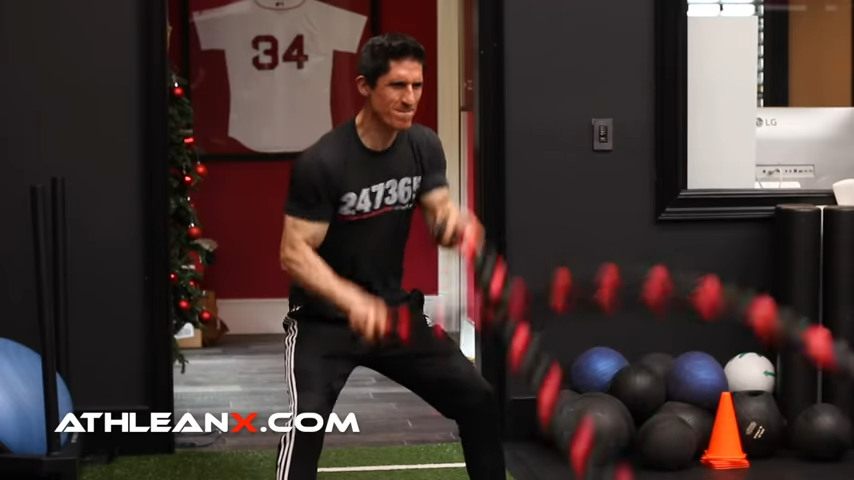
HOW TO DO BATTLE ROPES FOR BRACHIORADIALIS:
- Shift from an underhand grip to using a pronated grip. This allows you to focus the movement on the brachioradialis.
- Begin to move the ropes, alternating arms.
- Remember to keep the shoulder blades back and a slight bend in the elbows at all times. Maintain your core strength the entire time.
WHAT MAKES IT EFFECTIVE: Not only does working with battle ropes provide an excellent cardio workout, but it also forces you to use your forearm muscles, making them larger. That’s why this one is one of the best forearm workouts for size.
REVERSE GRIP CABLE CURLS

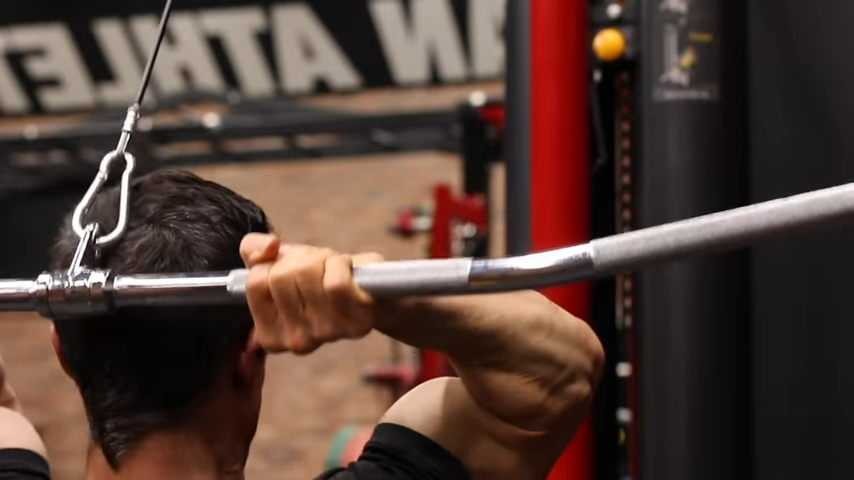
HOW TO DO REVERSE GRIP CABLE CURLS:
- Take a reverse grip on the lat pulldown bar.
- Curl the bar back behind the head, but be careful not to hit yourself with the bar.
- Slowly return to the starting position and repeat.
WHAT MAKES IT EFFECTIVE: Reverse Grip Cable Curls you to achieve more flexion at the elbow, increasing the activation of the brachioradialis to help with building forearms.
PICK UP YOUR PLATES

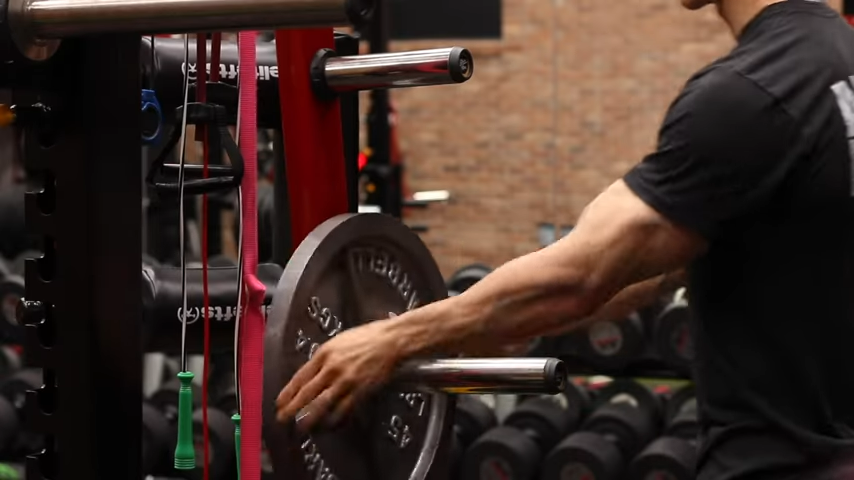
HOW TO PICK UP YOUR PLATES:
- Pick up your plates once you finish your workout and put them away using a safe neutral grip position.
WHAT MAKES IT EFFECTIVE: When you hold a plate the correct way, you are targeting the brachioradialis which improves grip strength and forearm development and strength as a whole.
If you’re looking for more ways to build bigger forearms, you can check out my article on How To Build Bigger Forearms.
There you have it, guys. Your complete guide for targeting those forearms muscles.
Remember to focus on the five functions of your forearms, selecting at least one exercise for each. Depending on your goals, this might mean you will use different forearm workouts from someone else.
Also, pay a lot of attention to the brachioradialis if your goal is to size up those forearms as a part of your workout. Don’t have a workout that matches your goal? Check out our ATHLEAN-X programs to see which is the best fit for you!
FOREARM WORKOUTS FAQS
The best 4 forearm exercises to build forearm mass are:
The best exercise for forearms is Rope Pronation. This helps build muscle mass and strength. Naturally, I wouldn't limit yourself to only one exercise for the forearms. I'd include at least three, preferably one for each function of the forearms in order to improve forearm size and strength.
The best way to target your forearms is to consider the five functions of the forearms and select one exercise for each to achieve forearm muscle growth. Perform these exercises at least once per week to help build stronger forearms but not on the same day as a pulling workout.
There are many reasons why forearm strength is important including improved grip strength, increased wrist stability, aesthetic balance, enhanced athletic performance, and injury prevention for the wrists, elbows, shoulders, and back.
There are a few simple exercises that you can include in your forearm workout program if you don't have access to weights:
- Forearm Flexor Push-ups
- Forearm Extensor Push-ups
- Reverse Curl
- Classic Wrist Curl
- Extensor Wrist Curl
Do a forearm session 1-2 times per week to help build muscular forearms and get some serious forearm gains.
If you want to make your forearms bigger, you need to pay close attention to a muscle called the brachioradialis. This isn’t a forearm muscle, but it is responsible for most of the width of the forearm. Here are the best workouts to make forearm veins pop and get those arms to grow:
Do a forearm session 1-2 times per week to help build stronger forearms.
If you want to build powerful forearms, you'll want to do a forearm muscle exercises for all of the major forearm muscles including forearm extensors and forearm flexors. The best 4 forearm exercises are:
The best forearm muscle exercises for building powerful forearms will include all of the forearm muscles including the extensors, flexors and brachioradialis. It's also important to include grip-intensive exercises when training forearms because poor grip strength will have negative effects in the gym and in daily life.
The best 4 forearm exercises are:
It's best not to train forearms everyday because muscles need some rest in order to repair themselves and grow. Instead, train your forearms with basic forearm exercises 1-2 times per week during your arm routines in order to increase forearm mass.
If you want to build massive forearms, you'll want to do a forearm session that includes exercises for all of the major forearm muscles including forearm extensors and forearm flexors and includes movement through all of the forearms' ranges of motion. It's also important to include grip-intensive exercises because poor grip strength will have negative effects in the gym and in daily life.
REFERENCES
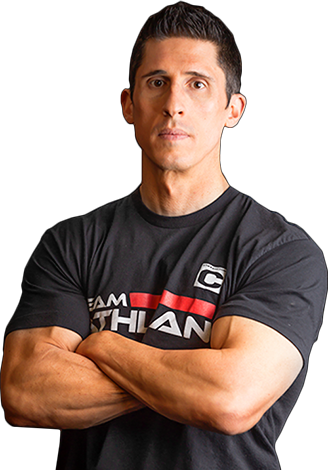
Jeff Cavaliere M.S.P.T, CSCS
Jeff Cavaliere is a Physical Therapist, Strength Coach and creator of the ATHLEAN-X Training Programs and ATHLEAN-Rx Supplements. He has a Masters in Physical Therapy (MSPT) and has worked as Head Physical Therapist for the New York Mets, as well as training many elite professional athletes in Major League Baseball, NFL, MMA and professional wrestling. His programs produce “next level” achievements in muscle size, strength and performance for professional athletes and anyone looking to build a muscular athletic physique.
